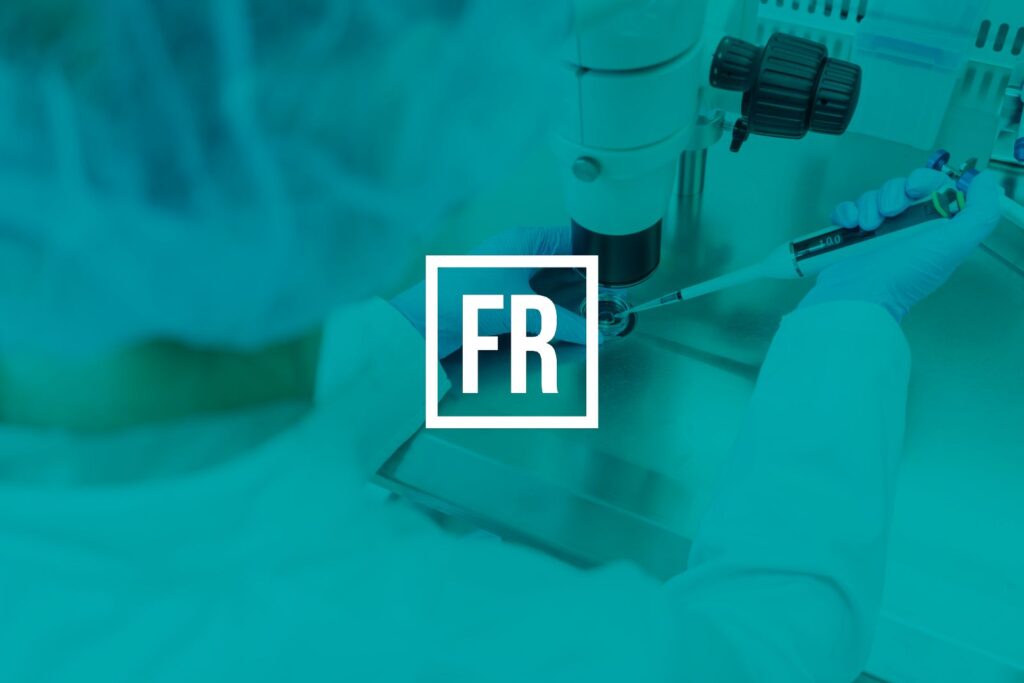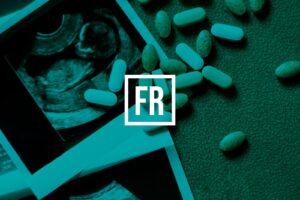When you are told that you need IVF to get pregnant, it can be daunting. There is a lot of information to process quickly and undoubtedly you will have lots of questions. There are several steps involved in an IVF treatment cycle and this guide is designed to help you.
Funding
Whether you are eligible for NHS-funded IVF or have to self-fund your treatment the steps of an IVF cycle are the same. NHS eligibility for treatment may be assessed by your GP but is generally considered in an NHS fertility clinic setting. All IVF treatment cycles must take place in a licensed fertility clinic. The Human Fertilisation and Embryology Authority (HFEA) regulates all UK fertility clinics offering treatments. Depending on the setup in your local area treatment may be undertaken in an NHS hospital, or in a private clinic as many are commissioned to provide fertility treatments for NHS patients.
Initial consultation
Once the decision to undergo IVF has been made then an initial consultation will start the process. In this first consultation with the clinical team, they will look at your fertility and medical history as this is a key part of planning your IVF cycle. During this meeting, you will discuss the reasons for having IVF and look in detail at the steps involved. The doctor or nurse specialist will require several test results to plan the IVF cycle in detail.
Investigations
A vaginal ultrasound scan is an essential fertility assessment. It is one of the most important diagnostic tests you have. It will assess the structural anatomy of the womb and ovaries, identifying any problems, and look at your Antral Follicle Count (AFC). The AFC measures the premature follicles in the ovaries, and this is used to evaluate your egg reserve. Anti-Mullerian Hormone (AMH) is also measured in the blood and is an important marker of your egg reserve. The AMH and AFC guide the clinical team as to the type of IVF protocol you need.
Screening blood tests
It is usual to check your thyroid function, prolactin and chlamydia levels in the blood before starting IVF. A well-controlled thyroid gland is important to minimise the chances of a miscarriage occurring after an embryo transfer. It is a mandatory HFEA requirement before starting any IVF cycle for the person or couple having IVF treatment to be screened for Hepatitis B, Hepatitis C and HIV. There may be additional screening tests performed if treatment involves the use of donor eggs or sperm.
Consent and Welfare of the Child
The clinical team has a responsibility to ensure that families are created responsibly. An IVF cycle can only begin once consent forms are complete, and the welfare of the child has been assessed. These are essential HFEA forms that must be completed before an IVF cycle.
You may be interested in reading:
How to prepare for IVF – A beginner’s guide + Do’s and Don’ts before IVF
Fresh IVF protocols
If you are undertaking a fresh IVF cycle you will tend to use one of two main protocols. IVF cycles in general involve a series of injectable medications to encourage the resting follicles in the ovaries to produce mature eggs. There are short and long IVF protocols, but both require a stimulation phase where daily injections of recombinant Follicle Stimulating Hormone (FSH) are taken.
It is during this recruitment and growth phase (Stimulation) that multiple eggs mature and are then harvested from the ovaries during an egg collection procedure in theatre.
Typically, a short protocol is used for women that have a very high ovarian reserve and are at greater risk of Ovarian Hyperstimulation Syndrome (OHSS). This condition is associated with bloating of the abdomen when lots of eggs are harvested from the ovaries and occurs in 3-5% of IVF cycles. The benefit of the short protocol is that it is quicker for the patient and a safer way to stimulate the ovaries when the AMH level is high.
The Long protocol is frequently the preferred technique used to maximise egg yield during ovarian stimulation, particularly if the ovarian reserve (AMH) is lower. In a long protocol, it takes a bit longer and involves a nasal spray or injectable medication first to block ovulation (downregulation), before stimulating the ovarian follicles with rFSH.
All IVF cycles use vaginal ultrasound to monitor follicle recruitment and development. These internal ultrasound assessments monitor not only the follicles but also the womb lining (endometrium) as it develops. You can expect to have 3-4 ultrasound scans during the monitoring phase.
The trigger
Once most follicles reach an optimum size then ovulation is triggered. The trigger injection is critical to the final development and maturation of eggs in the follicles before ovulation happens. The ‘trigger injection’ is timed precisely to coincide with a surgical procedure in theatre to collect the eggs.
The egg collection
The procedure to collect eggs is performed in theatre while you are sedated. It is not usual for patients to require a general anaesthetic for an egg collection, and in some cases eggs can be collected under local anaesthetic if needed. Under ultrasound guidance a needle passes through the vagina into the ovary draining the fluid from each follicle. The aim of the procedure is to collect as many mature eggs as possible. The procedure takes around 20 minutes, and you go home a few hours later. You will be informed at the egg collection if the clinical team plan to transfer an embryo
in this cycle. If this is the case you will be asked to start taking progesterone to prepare the womb lining for the embryo transfer.
Sperm production
Normally men will produce a fresh ejaculated sperm sample on the day of the egg collection to fertilise the eggs. Some men may be asked to freeze sperm in advance of the IVF cycle starting to ensure there is sperm available on the day of egg collection. This approach is only done for men with significantly reduced sperm parameters. In some cases, if there is no sperm found in the ejaculate men may require a surgical sperm recovery procedure.
Fertilisation of eggs
On the day of egg collection, the sperm will be prepared and assessed. If the sperm parameters do not meet the strict criteria for traditional insemination, then a technique called Intracytoplasmic Sperm Injection (ICSI) is performed. Insemination involves placing a fixed amount of good-quality sperm around each egg in a dish in an incubator
to allow fertilisation to happen naturally. ICSI is used if sperm parameters are suboptimal and this involves the injection of a single sperm under high magnification into each mature egg. The eggs are left overnight in the incubator and the next morning the embryologist will check to see if normal fertilisation has occurred.
Blastocyst culture
Normally fertilised eggs are grown in culture in the dark, in a closed time-lapse photography incubator system, which monitors the development of each embryo. A normally fertilised egg will divide into a 2-cell embryo and then continue dividing in the culture media in the dish. A rapidly expanding ball of cells (blastocyst) is formed around the 5th or
6th day. The inner cell mass of the blastocyst goes on to form the baby, whilst the outer trophectoderm cells form the placenta. Increasingly now clinics prefer to extend embryo culture for 5 days and until the embryos reach the blastocyst stage.
Embryo transfer
Reaching embryo transfer day is a huge milestone. It can be physically and emotionally exhausting waiting for this day to come. In a fresh IVF cycle the embryo transfer is done 5 days after your egg collection. Increasingly the trend has
been towards replacing just a single embryo in the womb rather than two, to reduce the chances of a twin pregnancy. The embryo transfer is done while you are awake under ultrasound guidance. The embryologist loads the embryo into a slim catheter and the doctor or nurse will pass this through the cervix and into the womb and with a gentle push of a syringe will transfer the embryo.
Pregnancy test
The most important day for any patient going through an IVF cycle is the day of the pregnancy test. This is usually performed at home using a urine pregnancy test strip 11-14 days after the embryo has been transferred. Whether you have a positive or negative result the clinic will be there to support you and guide you through the next steps.
Ultrasound scan
If you get a positive pregnancy test then this will result in you having a further ultrasound 2-3 weeks later to confirm the pregnancy is in the right place and is growing appropriately. This is the first time you will see your baby’s heartbeat.
Unsuccessful IVF
Sadly, not every IVF cycle is successful. Some positive pregnancy scans can still lead to a miscarriage or in some cases an ectopic pregnancy. If you have a negative pregnancy result after your embryo transfer your clinic will be there
to support you and guide you as to the next steps. All fertility clinics offer counselling to support their patients going through these difficult stages, so do ask about this. If you have done well in your fresh IVF cycle then you might have achieved surplus embryos that are suitable to freeze. In this case, if your first embryo transfer has been unsuccessful,
this would usually lead to a further discussion with the clinical team about replacing a frozen embryo in the womb.
If you have any questions you want to put to Ed then register and join him once a month on Total Fertility Podcast for a LIVE Q&A session.
You may be interested in reading: How to prepare for IVF – A beginner’s guide + Do’s and Don’ts before IVF






